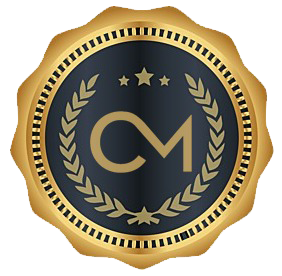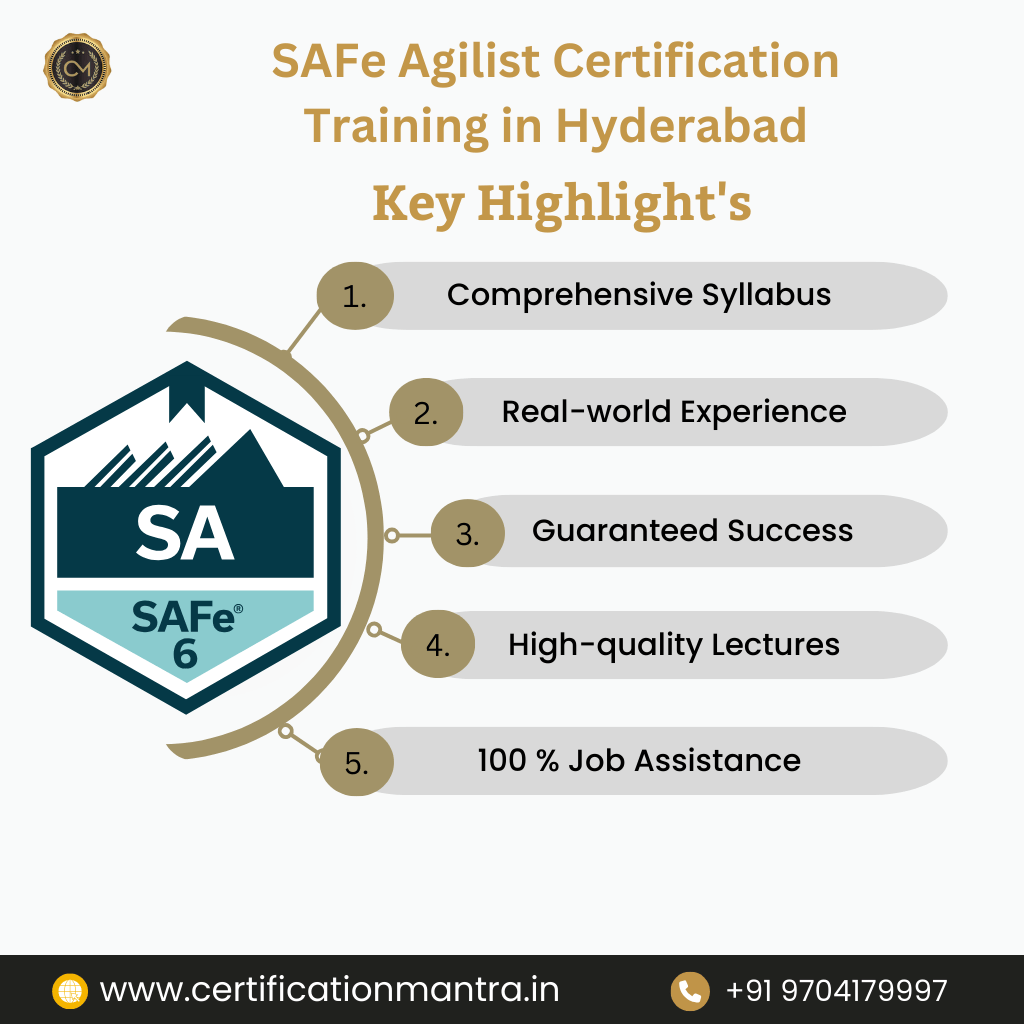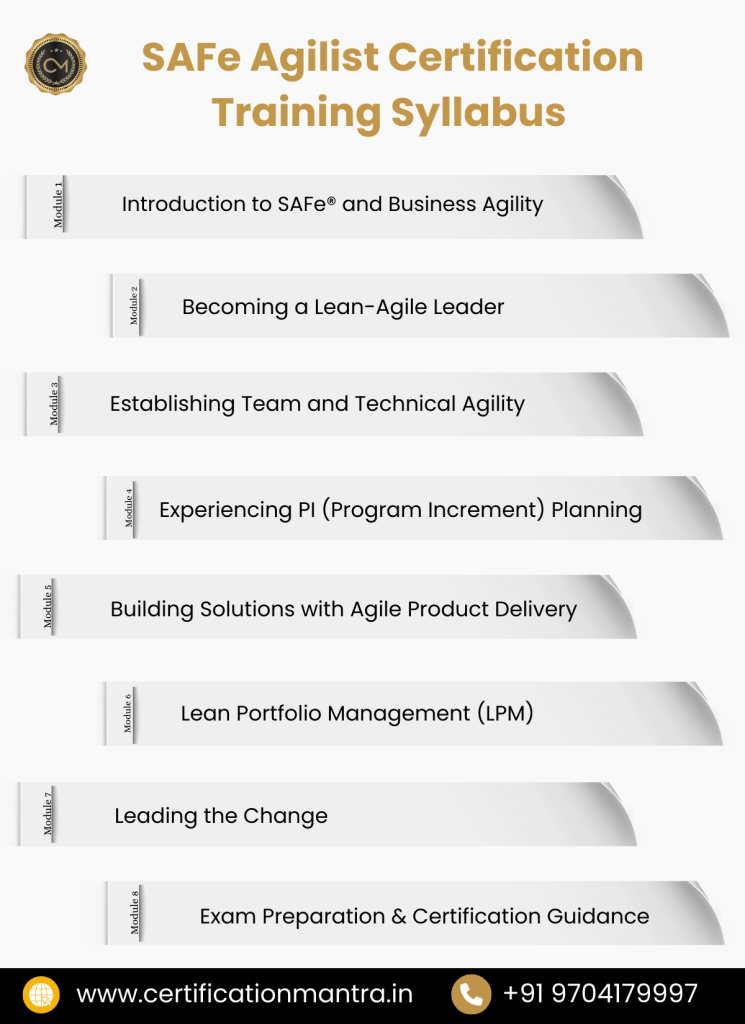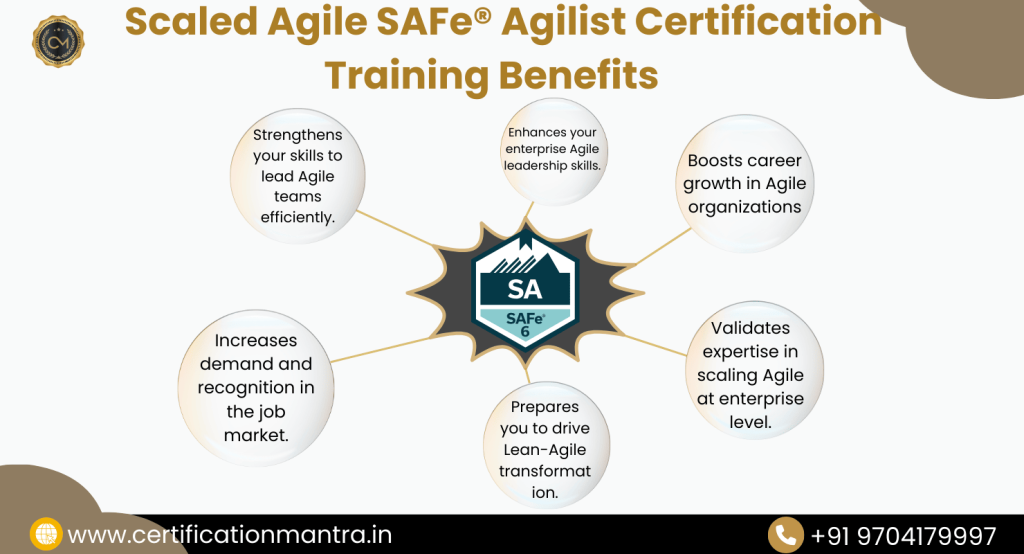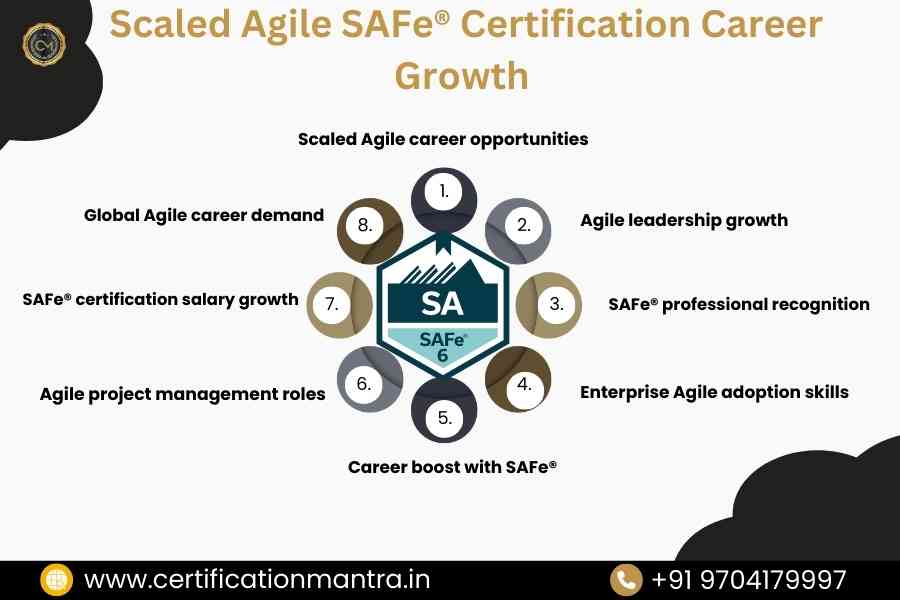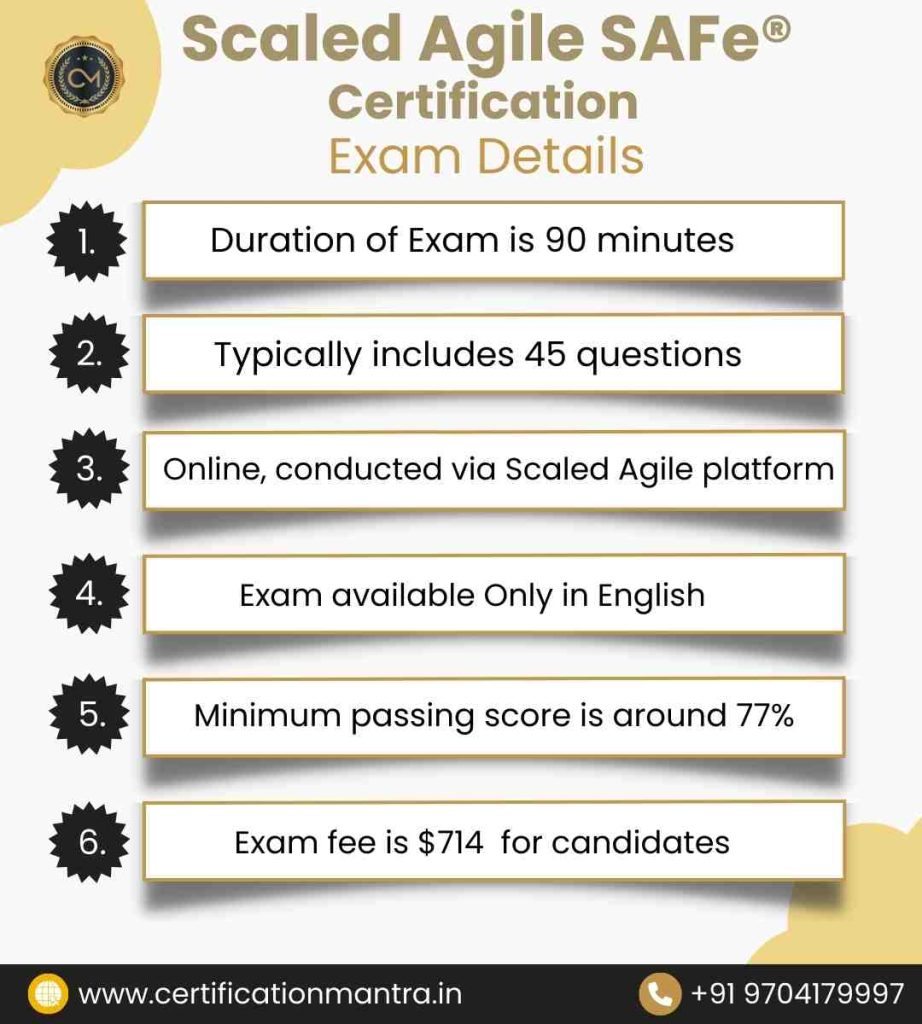Frequently Asked Questions

The SAFe DevOps Practitioner Certification validates your expertise in integrating development and operations to deliver value faster in a SAFe environment. It focuses on the CALMR approach—Culture, Automation, Lean Flow, Measurement, and Recovery. This certification shows you can streamline workflows across the full value stream. It’s widely recognized in the Agile and DevOps industries. Earning it helps boost your profile for high-demand DevOps roles.
This certification is ideal for developers, operations professionals, testers, release managers, architects, and Agile coaches. It also benefits product managers and leaders involved in the value stream. If you work in an enterprise implementing SAFe, this is highly relevant. It helps teams align DevOps culture with business goals. Both beginners and experienced professionals can take it.
The training covers DevOps culture, automation strategies, continuous integration, and deployment pipelines. It explores mapping value streams and identifying bottlenecks. You’ll also learn measurement techniques and recovery strategies. Real-world scenarios help you apply concepts effectively. The course ends with exam preparation and practice questions.
The exam is online, with multiple-choice questions. It consists of 45 questions to be completed in 90 minutes. You need at least 77% to pass (35 correct answers). It’s a closed-book, timed test taken individually. Results are available immediately after submission.
The cost varies by training provider, typically ₹45,000–₹55,000 in India. This fee usually includes training, study material, and one exam attempt. SAFe’s official fee covers the first exam attempt within 30 days. Additional retakes require a separate fee.
The SAFe DevOps Practitioner Certification is valid for one year. After that, you’ll need to renew it annually. Renewal ensures your knowledge stays up to date with SAFe updates. You can renew directly through the Scaled Agile website. Membership benefits are included in the renewal process.
It proves your ability to align development and operations in SAFe. You’ll be recognized as a professional who can accelerate value delivery. It opens doors to better career opportunities and higher pay. You’ll gain practical tools for improving DevOps pipelines. It also builds credibility in Agile and enterprise environments.
Yes, you can—but it’s not recommended.It also provides access to the official study guide and practice test. Attending ensures you’re fully prepared for the real exam. Many candidates find training crucial for passing on the first attempt.
Attend the official SAFe DevOps Practitioner training. Study the materials provided by Scaled Agile. Practice mapping value streams and designing CI/CD pipelines. Review the CALMR approach in depth. Take mock tests to familiarize yourself with the question style.
The official Leading SAFe® training is usually conducted over two days. After that, you can schedule the exam whenever you feel ready. Most candidates take 1–2 weeks to prepare thoroughly. Your preparation time depends on your Agile background. The sooner you study, the quicker you can get certified.
The difficulty depends on your familiarity with Agile, Lean, and SAFe principles. If you have prior Agile experience, the concepts will feel more intuitive. The exam becomes much easier when you complete the official training and review the study guide thoroughly. Practice tests help a lot in boosting confidence. It’s challenging but very achievable with the right preparation.
You need at least 80% to pass the SAFe® Agilist exam. That’s 32 correct answers out of 40 multiple-choice questions.Good time management is essential for completing all questions. The results are displayed immediately after submission.
Don’t worry—you can retake the exam. The first retake can be done immediately after the first attempt. The second retake requires a 10-day waiting period. After your third attempt, a 30-day waiting period applies. Additional fees apply for each retake.
The cost usually ranges from ₹50,000 to ₹65,000, including training. This price covers study material, the first exam attempt, and a one-year SAFe® Community membership. Retake fees are charged separately if needed. Prices vary slightly between training providers. Always confirm with the provider before enrolling.
Yes, it’s valid for one year from the date of passing. You need to renew it annually through the Scaled Agile website. Renewal also extends your SAFe® Community membership. This ensures you have access to updated resources. Keeping it active shows you’re current with SAFe practices.
Absolutely. You just log into the SAFe® Community Platform and follow the renewal steps. It usually involves paying a renewal fee. Your membership and certification status are updated instantly. It’s a quick and hassle-free process.
You’ll learn how to scale Agile across the enterprise. It covers Lean-Agile leadership, business agility, and SAFe principles. You’ll master PI (Program Increment) planning and execution. You’ll also learn how to align teams towards strategic goals. The skills are practical and highly applicable in real-world projects.
Definitely! It makes you stand out for leadership and Agile transformation roles. You’ll be eligible for high-paying positions in Agile-driven organizations. It’s recognized worldwide, boosting your credibility. Many certified professionals report better job opportunities after completion.
Yes, it’s offered by Scaled Agile, Inc., a globally recognized authority. It’s recognized and valued across industries such as IT, finance, healthcare, and manufacturing. You can work on Agile transformation projects anywhere in the world. Employers value it as a benchmark for enterprise Agile leadership.
To prepare well, start with official SAFe® course materials and study guides provided during training. Review the SAFe® framework, DevOps principles, and Continuous Delivery Pipeline concepts thoroughly.Participating in group discussions or mock sessions can help strengthen your understanding. Consistent revision and scenario-based thinking will improve your exam readiness.
A major mistake is rushing through without fully reading the questions. Avoid assuming answers based only on Agile knowledge—SAFe® DevOps has specific practices.Stay calm if you encounter unfamiliar terms—use elimination to narrow choices. Lastly, manage your time wisely to answer all questions.
Yes, you can retake the exam if you don’t pass on your first attempt.Subsequent retakes may require a waiting period as per Scaled Agile’s policy. Each retake comes with an additional exam fee. It’s best to review your weak areas before scheduling another attempt.
Yes, freshers can take the certification if they have basic Agile and DevOps knowledge. However, having some hands-on project exposure is highly recommended. Training will cover concepts from scratch, so even beginners can grasp them. Freshers with this certification stand out in job applications. It can give a significant advantage when entering Agile-driven organizations.
While no certification can guarantee a job, it greatly improves your chances. Employers value certified professionals for their verified skills. It shows you understand how to implement DevOps in a SAFe® enterprise. Combined with relevant experience, it boosts your profile significantly. Networking and applying the knowledge in real projects will further enhance job prospects.
Yes, many companies allow remote or hybrid roles for SAFe®-certified professionals. Your skills in managing DevOps pipelines and SAFe® workflows translate well to remote setups. You can collaborate effectively using digital Agile tools. Remote work is especially common in IT and software development industries. Having this certification shows you can deliver value from anywhere.
In India, certified professionals often earn between ₹8–18 LPA. In the US, salaries can range from $90,000 to $140,000 annually. Your pay potential increases with additional SAFe® certifications and experience. Employers are willing to offer premium packages to certified experts.
No, there is no mandatory project submission for the certification. However, practical experience in DevOps and Agile environments is beneficial. Training sessions include activities and case studies for real-world exposure. These exercises help you relate concepts to practical situations. Hands-on knowledge makes passing the exam easier.
You’ll gain access to the SAFe® Community Platform. This includes toolkits, templates, and updated learning content. You can join global SAFe® forums and networking groups. Opportunities for advanced SAFe® certifications become available. The community helps you stay updated and connected.
Yes, you can progress to higher-level SAFe® certifications. Options include SAFe® Agile Product Management, SAFe® Release Train Engineer, and others. Your DevOps knowledge will complement advanced SAFe® roles. Some certifications may require additional training or prerequisites. Continuous learning can help you move into leadership positions.
